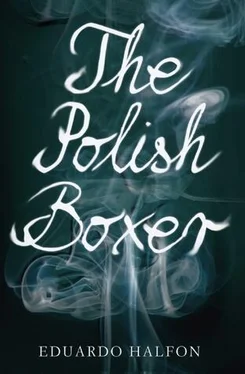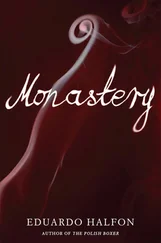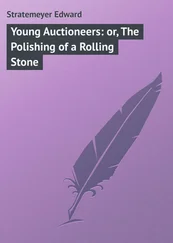Eduardo Halfon - The Polish Boxer
Здесь есть возможность читать онлайн «Eduardo Halfon - The Polish Boxer» весь текст электронной книги совершенно бесплатно (целиком полную версию без сокращений). В некоторых случаях можно слушать аудио, скачать через торрент в формате fb2 и присутствует краткое содержание. Год выпуска: 2012, Издательство: Bellevue Literary Press, Жанр: Современная проза, на английском языке. Описание произведения, (предисловие) а так же отзывы посетителей доступны на портале библиотеки ЛибКат.
- Название:The Polish Boxer
- Автор:
- Издательство:Bellevue Literary Press
- Жанр:
- Год:2012
- ISBN:нет данных
- Рейтинг книги:4 / 5. Голосов: 1
-
Избранное:Добавить в избранное
- Отзывы:
-
Ваша оценка:
- 80
- 1
- 2
- 3
- 4
- 5
The Polish Boxer: краткое содержание, описание и аннотация
Предлагаем к чтению аннотацию, описание, краткое содержание или предисловие (зависит от того, что написал сам автор книги «The Polish Boxer»). Если вы не нашли необходимую информацию о книге — напишите в комментариях, мы постараемся отыскать её.
marks the debut of a major new Latin American voice in English.
The Polish Boxer — читать онлайн бесплатно полную книгу (весь текст) целиком
Ниже представлен текст книги, разбитый по страницам. Система сохранения места последней прочитанной страницы, позволяет с удобством читать онлайн бесплатно книгу «The Polish Boxer», без необходимости каждый раз заново искать на чём Вы остановились. Поставьте закладку, и сможете в любой момент перейти на страницу, на которой закончили чтение.
Интервал:
Закладка:
Dizzy from the whiskey, or maybe from the overdose of history, or maybe from something much more ephemeral or even erotic, I said nothing, although I probably could have said: The only way to tell a story is to stutter it eloquently, or at least that’s what a Brooklyn friend who stuttered only when it suited him used to tell me. Or maybe I could have said: Once, in a hotel in Ilhéus, Lía fell in love with a hole someone had made in the back of the door of her room, a deep, inexplicable, sublime hole that she swore kept getting bigger and deeper every day. Or maybe I could have said: My grandfather was probably trained by a Polish boxer in Auschwitz. Or maybe I could have said: I’m back in the little glass jar again, all mixed up with hundreds of little blue boys and little pink girls. Or maybe I could have said: Once, a half-Serbian, half-Gypsy boy wanted to become a Gypsy musician, and so he said goodbye to his family, did a pirouette in the middle of a forest, and disappeared forever among the trees of Belgrade. Or maybe I could have said: Epistrophy doesn’t actually mean a fucking thing. But I didn’t say anything, luckily.
Davor knocked back what was left of his espresso and, looking at his watch, said he had to go, that it was already time to stop by the hotel for another group of architectural tourists. He didn’t smile. I’m going too, said Slavko. My leg’s hurting a bit and I’d rather be lying down. But you two stay, he added, and then he said something in Serbian to the boy reporter. I asked Slobodan if he knew the bohemian quarter. Skadarlija, I read from my notes. That’s near where I live, he said. Of course, shouted Slavko with a smile, Eduardo wants to listen to a bit of Gypsy music, and my girlfriend recommended going to the cafés in Skadarlija. Really, you want to hear Gypsy music? Slobodan asked me, but I wasn’t sure if he was curious or disapproving, or both. I said I’d buy him a beer if he came with me. Slobodan started mumbling in Serbian, probably that it was already getting late, that they’d be waiting for him at home, that his father needed the suit back. Slavko said something to him in Serbian and gave him a hefty slap on the back, and it was as though he’d unjammed a robot, because Slobodan stopped mumbling immediately and said yes, of course, let’s go and hear some Gypsy music.
Skadarlija struck me as more of a decadent neighborhood than a bohemian one, but an attractive sort of decadent, a seductive decadent, like the elaborate speech of a serial killer. We walked for a while. The cold had sharpened and it was still snowing and the snow made everything nobler and more dreamlike and deceptive. Slobodan told me straight out that he hated Gypsies, that most Serbs hated Gypsies, that they were good musicians, sure, but they were also a bunch of fools and lazy slobs. And beggars, he added. Just look at that. There was an old, fat Gypsy woman sitting on the ground with a flaccid breast hanging out. She held out her hand to us while she suckled a baby girl. I gave her a coin, thinking that I’d never have given anything to a Mayan woman breast-feeding in the street, then decided it would be best to forget that thought as soon as possible. Slobodan sighed with distaste.
We went into a little café with no one in it. Then we went into another overlit café that didn’t have a name or at least didn’t have one written anywhere. The tables were empty. On the bar there were three bottles and maybe a dozen upturned glasses. Slobodan talked to the waiter for a while and then told me we should go, that there was a place farther along that had live music. It’s called Nebe-ski Narod, he said as we crossed the street. It’s a Serbian saying, he said. It means people of the heavens, he said. I thought about ethnic cleansing. I thought about racial fanaticisms. I thought about Srebrenica. I thought about the intolerance of any people who think they’re the chosen ones, an intolerance that, since my childhood, when they taught me to pray to a God that for some reason spoke only Hebrew, I knew only too well. And as we walked into the People of the Heavens, I smiled at Slobodan as sarcastically as I could.
It was a dark, cramped place that smelled of patchouli oil. We sat down. Slobodan ordered two beers. The musicians will arrive soon, according to the waitress, he said after taking a long swig. I nodded and we stayed quiet for a while as I inspected every person who came through the door. Did you know, Eduardo, that gouging your eyes out, I mean, the expression to gouge your eyes out, means to have an orgasm in Gypsy language? I didn’t know, and I didn’t think to ask him how he knew. Lick my foot after I’ve stepped in shit, he said. What? It’s a Gypsy insult. Popušiš mi nogu kad stanem u govno. It means lick my foot after I’ve stepped in shit. Right, I said. Then we reply jedi kurac. But at that moment two Gypsies with trumpets and two Gypsies with violins and another Gypsy with a huge double bass came in and the boy reporter didn’t say anything else.
From one corner of the room, they started to play loud and fast and spiritedly, while a girl who had also arrived with them went from table to table with a black hat, asking for money. A kolo, I thought, and then I thought about Lía mounting me and moaning. Proper blues, I thought, proper mariachi music, but without the sadness, or rather with a different form of the same sadness. Because there was sadness in this too, of course, only instead of an open lament, this one was buried and covered up and dressed in too much joy, like a clown’s smile.
They played for exactly an hour and we drank three more beers in silence, just listening. The place was pretty full now, mostly with very pale, Gothic-looking Serbian teenagers with piercings hanging from everywhere like stalactites. Slobodan, even though he was more relaxed and had lost the black tie, insisted on keeping up a stoic and indifferent attitude as he sat there biting his nails. Watching him, I had the impression he was someone who had yet to understand that the sea is without doubt the perfect cemetery, and that cowboys always win because they have rifles, and that in fact cowboys always lose because they have rifles, and that honey should be eaten on its own and with your finger and preferably alone, and that the shape of the nipple is far more important than the shape of the breast.
The Gypsies started to file out toward the door as soon as they’d finished. I stood up and told Slobodan I needed his help. I went up to one of the trumpeters, a man in a red jacket and felt hat, and started mumbling something to him, partly in English and partly in Spanish, about a young Gypsy named Milan Rakić, a Gypsy pianist, a friend of mine, and maybe he knew him or had seen him or had heard about him. The trumpeter stood looking at me without saying anything. I took out the photo of Milan and showed it to him. Milan, Milan Rakić, I said, pointing at the picture. With a sickened or perhaps nervous face, Slobodan talked to the Gypsy trumpeter in Serbian, translating what I’d said, and the Gypsy took the photo and looked at it from close up and passed it to his friends and they laughed and the little Gypsy girl laughed and the trumpeter in a red jacket grabbed it back, tearing it a little, and he started shouting at me in Serbian as he jabbed at Milan’s face with his index finger and showed me his gold teeth and shouted even louder. He says, Slobodan translated, that the guy in the photo isn’t a Gypsy. And still laughing and gesticulating wildly, they walked out.
I stood there a bit disorientated, examining the face in the photo, and Slobodan had to push me back to the table. I’ll be right back, he said, throwing me a cigarette and heading for the bar. He doesn’t look like a Gypsy because he’s got his mother’s Serbian features, I said out loud, as though to calm myself down a bit, as though to break the spell, as though to banish the doubt that was starting to loom up all around and gnaw at me like any good film would have done, or any bad film. I lit the cigarette, my hand trembling, or perhaps it wasn’t.
Читать дальшеИнтервал:
Закладка:
Похожие книги на «The Polish Boxer»
Представляем Вашему вниманию похожие книги на «The Polish Boxer» списком для выбора. Мы отобрали схожую по названию и смыслу литературу в надежде предоставить читателям больше вариантов отыскать новые, интересные, ещё непрочитанные произведения.
Обсуждение, отзывы о книге «The Polish Boxer» и просто собственные мнения читателей. Оставьте ваши комментарии, напишите, что Вы думаете о произведении, его смысле или главных героях. Укажите что конкретно понравилось, а что нет, и почему Вы так считаете.












